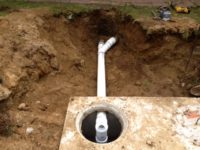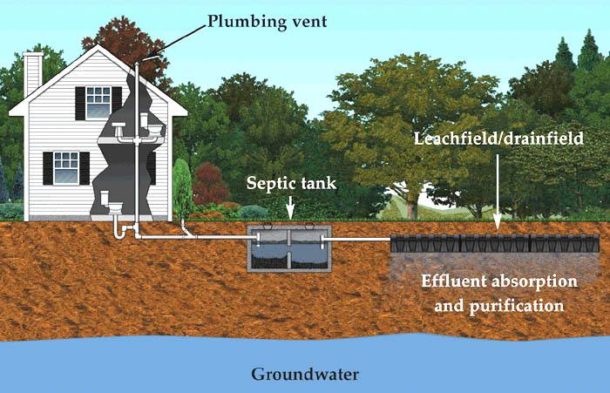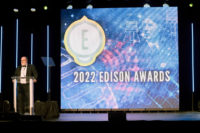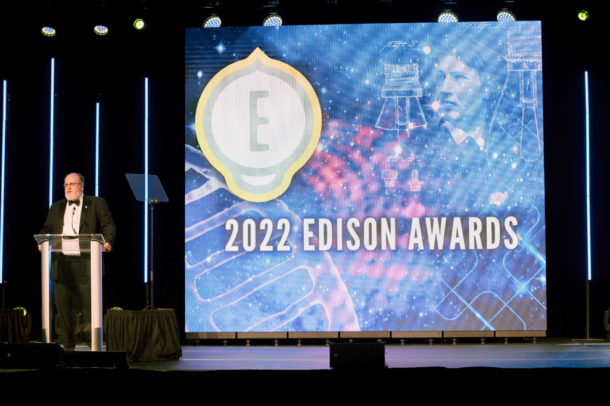When it comes to building a sustainable future, more residents and businesses are looking into different ways to do this. While yes, most folks will turn to smart home technology since these are energy efficient and are ideal for tracking energy and water use, this isn’t necessarily the only thing that’s being done. In fact Read more
water conservation

When it comes to building a sustainable future, more residents and businesses are looking into different ways to do this. While yes, most folks will turn to smart home technology since these are energy efficient and are ideal for tracking energy and water use, this isn’t necessarily the only thing that’s being done. In fact, more homes and businesses have been opting for sustainable plumbing for their homes and commercial spaces, such as low-flow toilets, low-flow faucets, and other fixtures.
But with that said, however, while there are more and more options slowly growing for residents and commercial owners to choose from, even with plumbing, is it still enough? Specifically, one major question that’s been coming up, especially those in suburbs, tiny homes, and trailer parks, would be septic tanks. Are septic tanks actually sustainable, and can these help make plumbing more eco-friendly? Well, here’s everything you need to know!

Septic Tank Basics
So, before this can be a simple “yes” or “no,” you’re going to have to get a solid grasp of the basics first. Septic tank systems consist of two main components: the septic tank itself and a drain field. The septic tank is buried in the lawn and made of concrete, fiberglass, or even plastic.
It’s able to separate the solids and liquids, which can be seen as a good thing since municipal plumbing, like in a major city, usually doesn’t do that. Effluent in the tank is then released once there are layers in the tank (such as a layer for sludge and a layer for grease), and then the effluent gets into a drain field, which then gets filtered into the soil. This gives the chance for microorganisms to break down any contaminants that are left.
The Factors That Help Make Septic Tanks Sustainable
So, to simply put it, yes, septic tanks can be sustainable; while they’re not perfect, you can count on professional plumbers like Wade’s Plumbing & Septic to help you install them so your plumbing will be more sustainable. What exactly makes a septic tank sustainable?
There’s the Aspect of Natural Process
Septic tanks rely on natural processes for wastewater treatment. The anaerobic bacteria in the tank break down the solid waste, and the effluent undergoes further treatment as it percolates through the soil in the drain field (what was already mentioned earlier). To a degree, this natural treatment can be considered eco-friendly compared to more energy-intensive centralized wastewater treatment plants.
No Need for an Extensive Sewer System
They’re located on properties, so each home is going to get its own septic tank. This eliminates the need for extensive sewer infrastructure and reduces the energy required for pumping and transporting wastewater to centralized treatment facilities. But how exactly does this make a septic tank sustainable? While, again, they’re not 100% sustainable, what this at least means is that fewer resources will be used and few habitats will be damaged since it’s a small space that needs the septic tank to be installed rather than an extensive piece of land.
Less Energy Being Used
Central sewage systems, like those you find in cities, need a lot of energy; they’re not exactly sustainable. In order to be operated, energy has to be used, and septic tanks don’t need any of that. In fact, they operate just fine without any electricity in the slightest. Sometimes, a septic tank needs to be pumped, and there needs to be maintenance, but this is usually around once a decade at most, so this is extremely energy efficient.
Soil Filtration
When it comes to the the drain field, this is actually the component of septic systems that relies on soil filtration to further treat effluent. This was already briefly mentioned earlier, but this is what really helps out in making a septic tank such a unique plumbing system for homes. It’s the soil itself, specifically healthy soil, that acts as a natural filter.
The soil itself is actually able to remove impurities and pathogens from the water. This process contributes to groundwater recharge and can be considered environmentally beneficial when the soil has the capacity to effectively treat the effluent.
Water Conservation
A lot of homeowners, in particular, are switching to low-flow fixtures, and they’ll also even go as far as not flushing the toilet as much. These can be a good thing in the name of being more eco-friendly.
When it comes to septic tanks, homes will actually need to be cautious about their water use because it can lead to problems in the septic tank, like reduced treatment efficiency and potential environmental impact (such as the ground getting contaminated). So, for homes that want to conserve more water, you’re basically going to have no choice but to do this; if you have a septic tank, you’ll need to.
Biodiversity
Alright, so this one could actually be seen more as a mixed bag because there is a pro and con to it. Septic tanks do use soil filtration, and the soil itself is able to remove impurities, which then can turn into groundwater. Plus, the nutrients that are released can be good for vegetation, too. So, that’s a good thing, but this still isn’t perfect either. On the other hand, excessive nutrient loading may lead to imbalances, affecting local flora and fauna negatively. So it’s like a catch-22 where there are some perks, but at the same time, there are still some bad aspects to it.
Potential Concerns
Just above, you’ll see that while yes, a septic tank is good for the soil, at the same time, is can lead to an imbalance. But that’s not necessarily the only concern there is, though. They can have the ability to cause potential harm if they’re not being properly maintained either. Failing or poorly maintained systems may release untreated or partially treated wastewater; this will then get into the soil and even into the ground water.
While it’s true that the soil can help filter out the water, if there’s too much and if the tank isn’t be maintained like it should be, then it’s not going to get the job done, leading to pollution. So, in short, while a septic tank is sustainable (for the most part), if it’s not being maintained properly, than it’s no longer eco-friendly, but in fact, it’ll be damaged in the environment.

Niagara Honored with 10 National Recognitions for Water Conservation Efforts in the last year Niagara®, the leader in high-performance, high-efficiency, water-saving toilets, is honored to be awarded a 2022 Bronze Edison Award in the Water Conservation category for the launch of their new Niagara Pro product line and three Bronze Stevie® awards in The 20th Annual American Business Awards® recognizing Niagara’s Pro Read more
Niagara Honored with 10 National Recognitions for Water Conservation Efforts in the last year
Niagara®, the leader in high-performance, high-efficiency, water-saving toilets, is honored to be awarded a 2022 Bronze Edison Award in the Water Conservation category for the launch of their new Niagara Pro product line and three Bronze Stevie® awards in The 20th Annual American Business Awards® recognizing Niagara’s Pro product line as well as the product development team and its executive vice president, Carl Wehmeyer, who oversaw the development of the new product line that features over 100 SKUs designed with advanced technology, high performance and water efficiency.
The Edison Awards™ recognized over 150 companies from all over the world that are shaping the rapidly evolving world and building new industries with “game-changing” products and services. Started in 1987, the Edison Awards are named after Thomas Edison whose inventions, new product development methods, and innovative achievements changed the world. Awards are determined by a panel of judges composed of over 3,000 senior business executives and academics from across the globe, whose votes acknowledge excellence in meeting the award criteria. Niagara joins a prestigious group of previous Edison Award winners including 3M, Cisco, Lockheed Martin, Nike, and SpaceX.

The American Business Awards, the premier business awards program in the U.S., awarded Niagara’s product development and management team, David Jones, Kevin Kennedy and Kathy Liu, a Bronze Stevie Award in the category of Product Management Department/Team of the Year. Carl Wehmeyer, Niagara’s Executive Vice President, received a Bronze Stevie Award in the category of Product Management/Development Executive of the Year and Niagara’s Pro product line received a Bronze Stevie award in the category of Business-to Business Products. More than 3,700 nominations from organizations of all sizes and in virtually every industry were submitted this year for consideration. More than 230 professionals worldwide participated in the judging process to select this year’s Stevie Award winners.
“We are honored to be recipients of an Edison Award and three Stevie Awards and to join such an incredible list of industry change-makers,” said Wehmeyer. “Our mission is to bring new technology to our customers that conserves water without sacrificing performance. Launching our new suite of products in 2021 was a huge accomplishment for our entire team and a giant step in continuing to fulfill our mission.”
As of today, Niagara has received 10 awards or accolades in the last year that recognize the company’s ingenuity in water conservation technology and products. Previously, Niagara was awarded the 2021 EPA WaterSense award for Excellence in Promoting WaterSense Products, the Sustainability, Environmental Achievement & Leadership (SEAL) Business Sustainability Award under the Sustainable Product Award category for its Sabre product line, a Bronze Stevie® Award in the Female Executive of the Year category and Niagara is a finalist for the 2022 International Green Product Award in the Interior and Lifestyle category. Niagara’s Shadow 0.8 GPF toilet also was recognized as one of the 2022 Sustainable Products of the Year and Niagara was ranked first in the plumbing category as a brand leader by Greenbuilder magazine.
In 2021, Niagara launched four new toilet product suites designed specifically to save water with features and benefits for builders, remodelers, plumbing professionals, and everyday homeowners. At its core, Niagara’s goal is to create the greatest water-saving products in the market. The new Niagara Pro product suite takes this undertaking up a notch with characteristics that make this Niagara’s most revolutionary and water-saving line of toilets yet.
“The 2022 Edison Award winners are not only innovators, but also leaders in their field and community. We award this honor for the technological advances and the impact on industry. We know that their innovations will have long lasting effects on the world,” said Frank Bonafilia, Executive Director of the Edison Awards.
“We are so pleased that we will be able to stage our first ABA awards banquet since 2019 and to celebrate, in person, the achievements of such a diverse group of organizations and individuals,” said Maggie Miller, president of the Stevie Awards.
 The complete list of Edison winners is showcased at www.edisonawards.com. Details about The American Business Awards and the list of 2022 Stevie winners are available at www.StevieAwards.com/ABA.
The complete list of Edison winners is showcased at www.edisonawards.com. Details about The American Business Awards and the list of 2022 Stevie winners are available at www.StevieAwards.com/ABA.
To learn more about Niagara’s high-performing, water-saving products, please visit niagaracorp.com.
